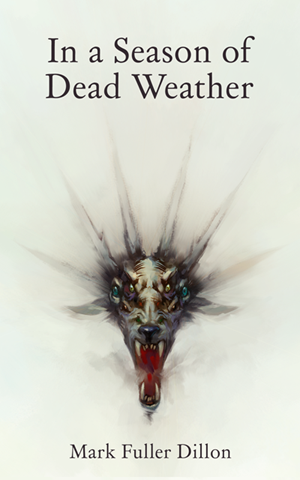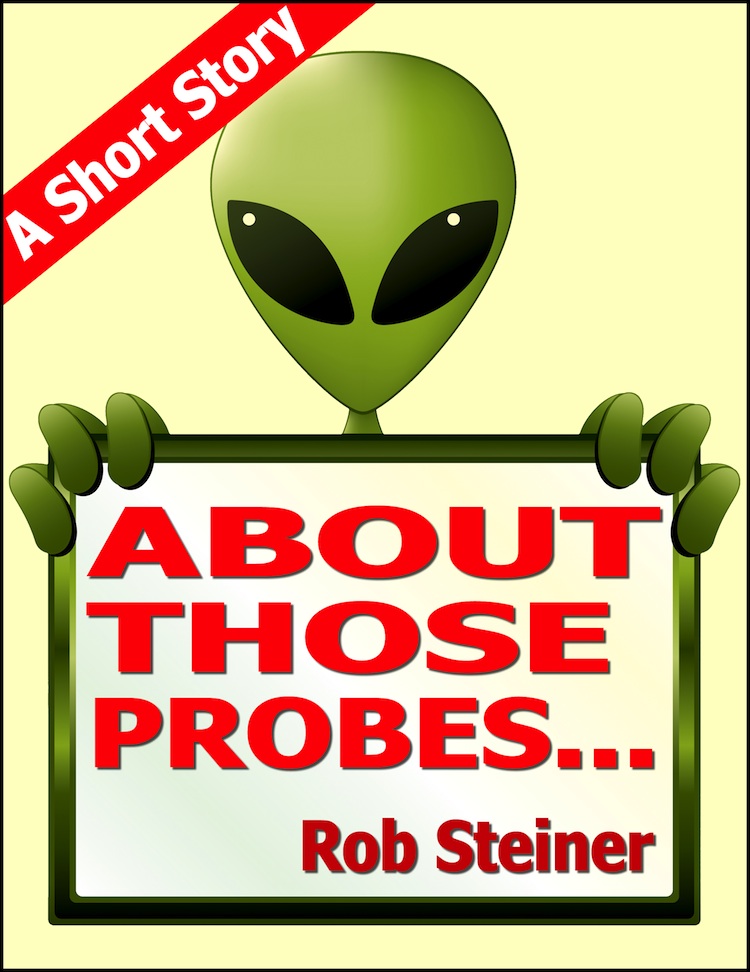 As the father of a 7-year-old, I can relate to many of the short stories in David Drazul’s sci-fi/horror collection, We’ll Watch the Sunrise from the Bottom of the Sea. The overarching theme to this collection is that parents are often clueless when it comes to raising their kids. Sometimes we get it right; sometimes we fail miserably. But we always try to do the right thing.
As the father of a 7-year-old, I can relate to many of the short stories in David Drazul’s sci-fi/horror collection, We’ll Watch the Sunrise from the Bottom of the Sea. The overarching theme to this collection is that parents are often clueless when it comes to raising their kids. Sometimes we get it right; sometimes we fail miserably. But we always try to do the right thing.
We start with “Emily’s Star.” While little Emily’s parents are renovating her room, they discover a strange point of light hovering near her ceiling. Her dad George decides to tinker with it, unleashing a sinister force none of them could imagine. I found the role reversal in this one humorous because the parents do exactly what most children would do if they found something strange in their room–they poke at it.
“Collection Notice” is part science-fiction, part political satire. A man from the future visits Senator Bartleby demanding payback for all the money Bartleby’s generation borrowed from the future. Drazul’s biting critique of both major political parties in the US–how neither one seems serious about America’s out-of-control debt–is timely, and I enjoyed this one a lot (of course, you may not like it if you disagree with Drazul). It conformed to the theme of trying to do the right thing, but failing miserably. I’m an optimist, so I like to think Republicans and Democrats thought they were helping people when they ran up the debt; the hard part now is to fix this mistake before it crushes us.
“Tile” is straight-up horror with no parenting theme. Silvio Gisardi is a tile-maker hired by a wealthy, eccentric, old man to tile a bathtub with the image of an ancient Illyrian lake god. “The Tile” is a clear homage to Lovecraft, with its evil gods and creepy mansions. My take-away? Never take a job from a wealthy, eccentric, old man who’s into ancient lake gods.
The book’s title story, “We’ll Watch the Sunrise from the Bottom of the Sea,” gets back to the parenting theme. While visiting an exotic hotel built forty feet beneath the South Pacific, Bryce and his wife Stephanie discover the true nature of Bryce’s family. He tries to avoid becoming like them, but the story implies that parental ties and traditions–even the ones we disagree with–are sometimes too strong to resist.
“The Recruiter” demonstrates a parental nightmare. A young teenaged boy buys a slick recruiter’s promises of glory and runs away from home to join a Holy War on Earth. While most parents don’t have to deal with their children becoming suicide bombers, the story made me ponder how I’d react if my daughter engaged in more mundane teen behavior that I knew to be self-destructive.
For me, “Maybe the Sun Will Come Out Tomorrow” was the most gut-wrenching. In a dystopian world where winter has mysteriously lingered, a father is forced to take his young daughter into a deserted town to scavenge for food and supplies. But his one moment of selfishness puts his daughter in terrible danger. Drazul comments in the story’s afterwords that he had originally written it with a more paranormal villan, rather than the natural threat he ended up writing. I think natural threats are more plausible and therefore more fearsome, so the story would’ve been much less powerful if Drazul had gone paranormal.
“She Cries at Midnight” combines parental instinct with a dash of horror and a whole lot of science-fiction. A mother is awakened every night when her twenty-month-old daughter cries out at exactly midnight. When the mother and father discover the truth, their attempts to protect their daughter cause a terrible misunderstanding with interstellar implications. This story was compelling because it showed what all parents would do in that situation, which makes the events all the more inevitable and tragic.
The final story, “Neptune’s Diamonds,” was about three friends who win a stake in an abandoned diamond mine in Neptune’s atmosphere. They think it’s an easy pay-day, but retrieving the diamonds turns out to be more difficult than they thought. This was the weakest of the collection for me because it was more predictable than the others; but I can still recommend it because it taught me a few things about Neptune that I never knew. And ultimately, learning something knew is why I read science-fiction.
Overall, We’ll Watch the Sunrise from the Bottom of the Sea was a strong collection of sci-fi/horror short stories that packs an emotional punch with deeply affecting parental themes. Highly recommended.
We’ll Watch the Sunrise from the Bottom of the Sea is available on Amazon. Learn more about David Drazul at DEDzone.net.
 Originally posted at the
Originally posted at the  What’s a poor goblin to do when a life of pillaging, barn burning, and general mayhem has lost its luster? Find out in this short story about Gorko, a goblin who wants to discover the world outside his Cave and Kin.
What’s a poor goblin to do when a life of pillaging, barn burning, and general mayhem has lost its luster? Find out in this short story about Gorko, a goblin who wants to discover the world outside his Cave and Kin. A short story with a humorous and somewhat insensitive take on alien abductions. Harry Hindman has been repeatedly abducted by aliens since he was sixteen. Now, with the end of the world approaching, he finds out just what was up with those probes…
A short story with a humorous and somewhat insensitive take on alien abductions. Harry Hindman has been repeatedly abducted by aliens since he was sixteen. Now, with the end of the world approaching, he finds out just what was up with those probes…